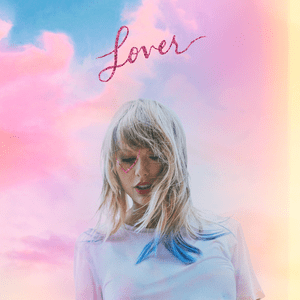For years, Taylor Swift’s music resided in the protective custody of young fans, safe from critics who are too old and/or removed from the present generation. With Lover, her latest album, she seems to be making strides toward changing that.

They are small strides, mind you. I still can’t quite get along with electropop, and Swift is not ready to loosen the grip she has on glossy, neon pop, not after having worked so hard to seize it from outside of the sonic gene pool. (Her flip from country to the top of the Billboard 100 still is a marvel of strategic planning.)
At a filled-to-bursting 18 tracks, the release tries to cover many more bases than we heard from her last album, Reputation (2017), including admirable steps back into the country sound, specifically with the sweet “Soon You’ll Get Better,” a song primarily about her mother’s recurring cancer. With the Dixie Chicks along for a solid “feat.,” the effort has a sincerity to it. “The Archer” works better than the strained nursery rhyme lyrics would lead one to expect, and alludes in passing to her being complicit in her past romantic difficulties.
Not every song hits the mark. The bombastic “ME!” with Panic! At The Disco’s Brendon Urie wants to pass itself off as a knowing wink to the audience, an acknowledgement that “the haters” still think Swift is an egomanic, but she can slough it off. Instead, the song does more to verify their grievances than deny them. “Cruel Summer,” a co-write between Swift, St. Vincent, and Jack Antonoff, flails. “You Need To Calm Down” seeks to show solidarity with the LGBTQ community, but comes off more like a posture than an alliance.
This is where Lover struggles. After years of gossip about her many relationships, and subsequent songs about the collapse of the same, the snipes that characterized Swift as pop’s reigning Regina George, the controversies stacking upon controversies, people found it hard to trust Swift wasn’t trolling her fans. Reputation was a sort of “screw it all” to the world that found the singer leaning hard into the witch queen tropes. Though the record still sold well, it marked a downturn from past successes. Lover is meant to be a salve to those, and often tries too hard, exerting too much weight on her own efforts.
The majority of the record is co-produced between Swift and longtime cohort Jack Antonoff, and I find that their work together shares the most cohesion (for obvious reasons). The introduction of songs by producers Frank Dukes, Louis Bell, Joel Little, and others feel jammed in. Some of this might be because Lover is her first release for new label Republic Records. The previous label, Big Machine, was purchased by Justin Bieber’s manager Scooter Braun, and there was a fair amount of bad blood between Swift, Bieber, and Braun. (Yup, more controversy.) The move to Republic may have caused in Team Swift an imperative to have a few bankable bangers to make the deal less risky.
This effort is designed to bring Swift back to likeability, and on the whole it does. She may never be America’s Sweetheart as she was during her peak with Red and 1989, but Lover at least signals a desire to move away from tabloid sensationalism into other areas. That can only be a positive.
